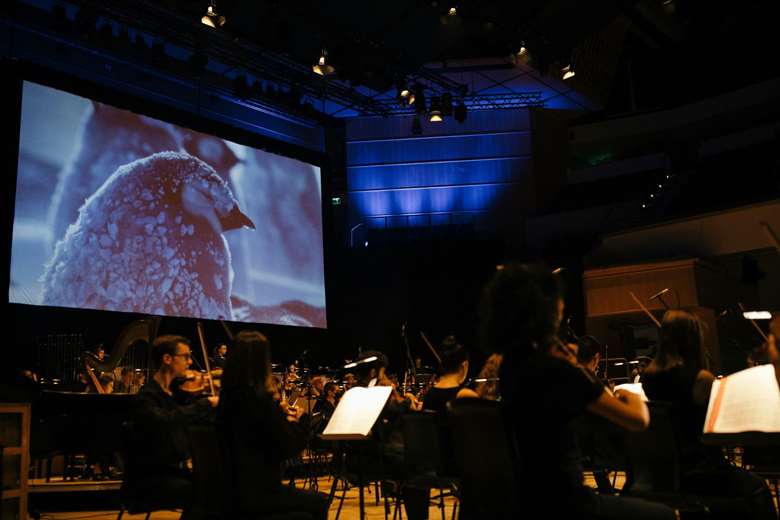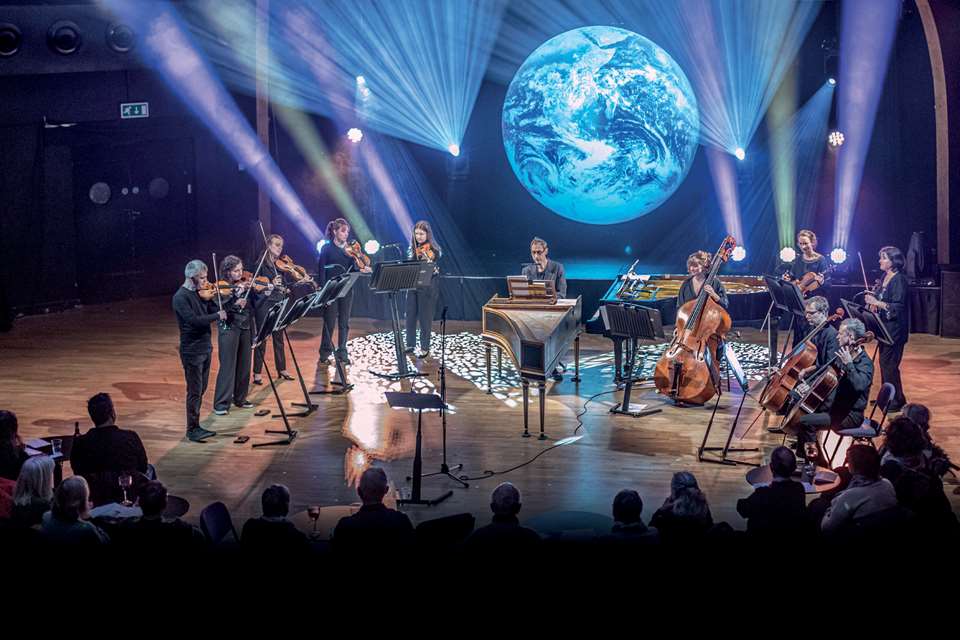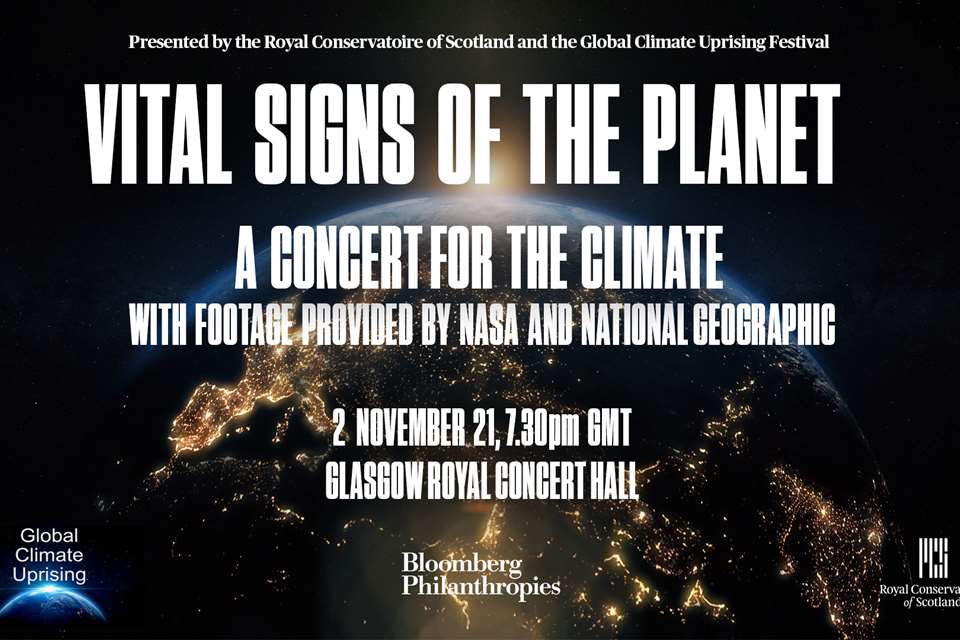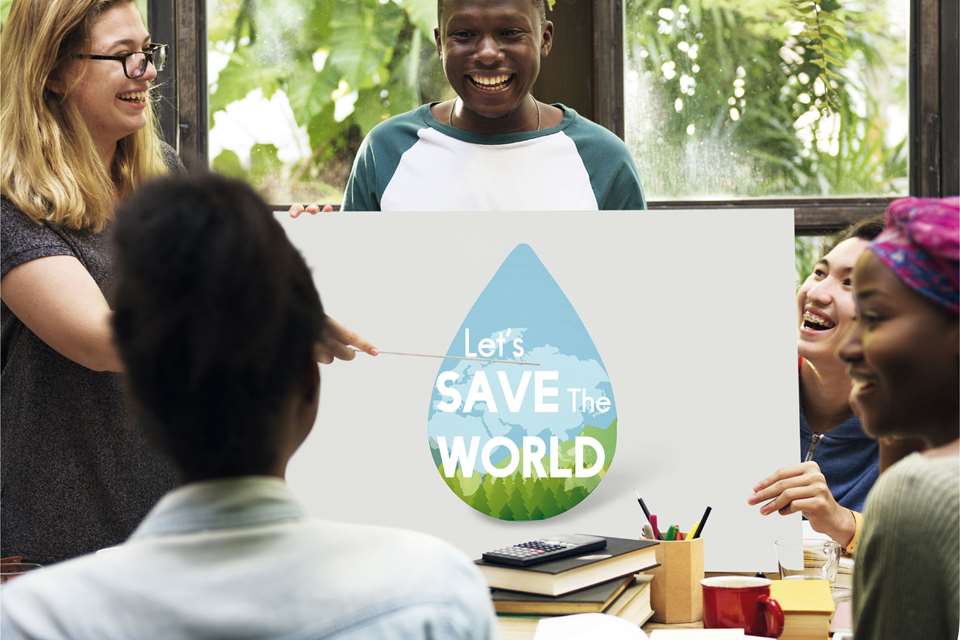Mental health and wellbeing column: empowering young advocates
Jill Morgan
Wednesday, May 1, 2024
Dr Jill Morgan, co-programme lead for MA Psychology in the Arts (Music) at the Royal Conservatoire of Scotland, explores the role of music education to advocate change in global crises

Jassy Earl / RCS
Music is ubiquitous; it's everywhere and we can't escape its powerful emotional effects, whether through active or passive engagement. Music is also a non-threatening, universally understood language that is appreciated by people of all ages and demographics.
Historically, popular music has had a strong tradition in environmental activism, with the strength of the celebrity role not necessarily being to initiate new solutions but to promote ideas to a wider audience through an extensive fan base. It therefore makes sense to use music's properties for the common good and offer it to the younger generation to voice their concerns over the future of the planet. We all have a role to play in looking after our environment, and children are becoming increasingly aware of global issues. Young people have a particular stake in this because it is their future that is in jeopardy. It is our duty as educators to provide them with the appropriate tools to have their say, through nurturing and responding to environmental issues.
Music education has a unique purpose, and teachers are constantly being challenged to engage with issues beyond the normal remit of the school curricula, designed to reflect the needs of a 21st-century learner. These needs are changing due to global crises, and music education professionals need to be upskilled and trained to nurture young creative minds to voice their concerns in relation to all types of societal and environmental changes.
Ecosocial approach
In recent years, interest has been developing in environmentally conscious approaches to music education research; for example, by studying relevant repertoire to perform, the reusing or recycling of old instruments, and utilising themes around sustainability in improvisation and composition. Raisa Foster and Katja Sutela from the University of Oulu in Finland advocate that by taking an ecosocial approach to music education, pupils can develop an awareness of multiple sonic environments, increase their understanding of the human-led environmental crisis, and appreciate mutually beneficial ways of interacting with multiple species in our world. This ecosocial approach can harvest transferable skills that positively impact on critical awareness, creativity and co-operation in addressing global issues.
We know that music is fundamentally linked to people, places, events, memories, experiences and emotions, which enable the development of knowledge and creativity. Giving children the agency through music to participate in preventative measures and efforts to adapt to major global issues should be placed high on the agenda in schools. School music programmes need to incorporate climate-conscious music education for all. In a recent article, Sistema Scotland highlighted the pressing need for music education to address environmental sustainability against the background of the escalating climate crisis. Such is the urgency, Sistema Europe will be hosting a debate in July at their ‘Song for the Earth’ summer camp to explore the complex and vital relationship between music, education and the environment.
Awareness
As part of the Royal Conservatoire of Scotland Climate Portals festival, I was privileged to speak with an international arts curator who highlighted the value of music and the arts as one of the best ways to deliver awareness and encourage young people to actively select being part of that awareness process. ‘It's all about getting them really interested without exerting any pressure; awareness activities must be devoid of force or coercion’, they said. There was a key emphasis on the ability of musical activities alongside language to help them understand the importance of protecting our planet and reducing the impact of climate change.
Many teachers utilise musicals and songs that raise awareness which, in turn, inspire thought and discussion on current issues from climate change, pollution and recycling to the refugee crisis. Creating new songs in the classroom can be hugely beneficial, especially when amalgamated with other areas of the curriculum, encouraging not only pupils but also staff to come together and explore sustainability through the medium of song. Lyrics are particularly effective as they are easily understood and can be used to spread messages related to climate change across large segments of the population.
I believe it is vital for children to be encouraged from an early age to be involved in age-appropriate musical activities that develop an awareness of their environment. They are the future, and these activities can place them at the front and centre of societal concerns. Their innovative and new perspectives are key to the future of human existence, and it is our obligation to give the children of today their voice to be heard.
Further reading
- Buchborn, T. et al. (2022) ‘Reconfiguring music education for future-making: how?’, Music Education Research, 24(3), pp. 275–281.
- Foster, R. and Sutela, K. (2024). ‘Ecosocial approach to music education’, Music Education Research, 26(2), pp. 99–111.






